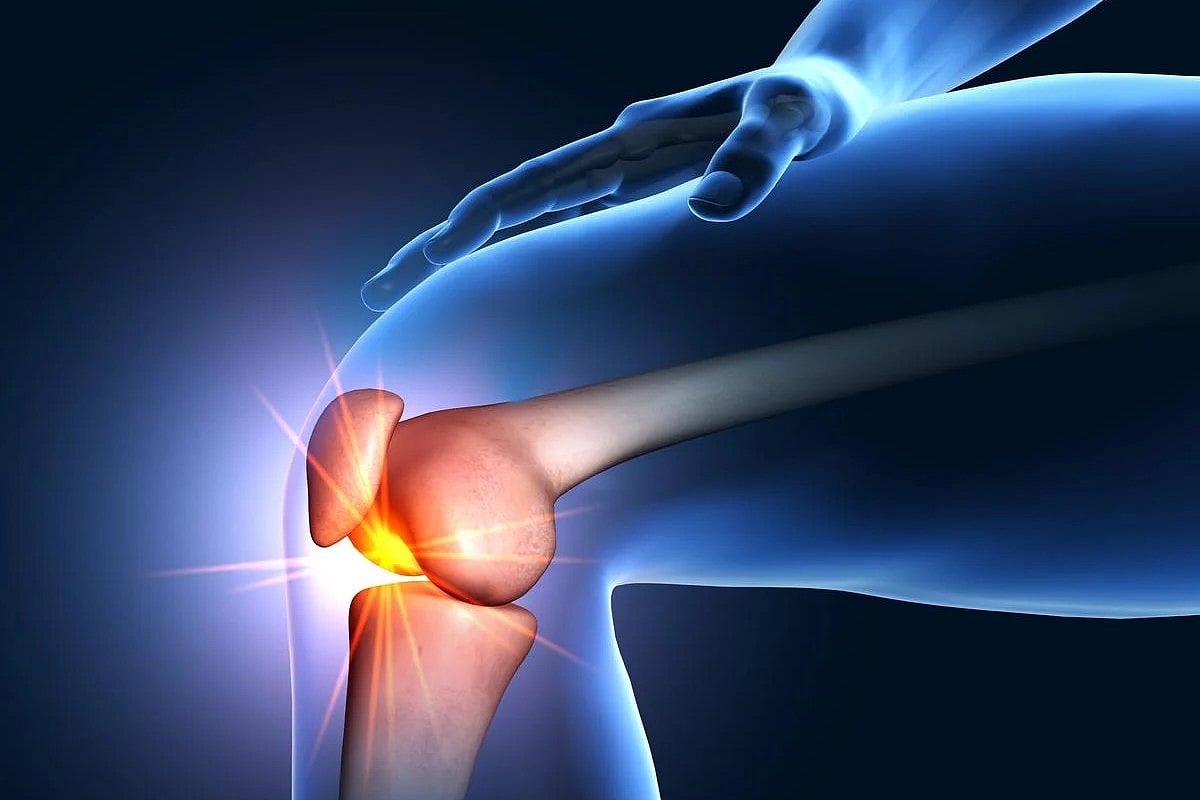Manténgase sano!

- Posted October 1, 2025
Knee Arthritis Pain? Radiation Might Help, Study Says
People with aching knees might receive relief from a course of low-dose radiation therapy, a new study suggests.
People with mild to moderate wear-and-tear knee arthritis felt less pain and had better mobility after radiation treatment, researchers reported Sunday at a meeting of the American Society for Radiation Oncology in San Francisco.
“People with painful knee osteoarthritis often face a difficult choice between the risks of side effects from pain medications and the risks of joint replacement surgery,” said principal investigator Dr. Byoung Hyuck Kim, an assistant professor of radiation oncology at Seoul National University College of Medicine in South Korea.
“There’s a clinical need for moderate interventions between weak pain medications and aggressive surgery, and we think radiation may be a suitable option for those patients especially when drugs and injections are poorly tolerated,” he added in a news release.
Knee osteoarthritis affects more than 32 million U.S. adults, researchers noted. It occurs when the cartilage that provides cushioning in the joint wears down over time, eventually allowing the ends of bones to rub against each other.
Low-dose radiation is regularly used for joint pain in European countries like Germany and Spain, but there haven’t been enough high-quality trials to prove the approach’s effectiveness, researchers said.
For the new study, researchers recruited 114 patients with mild to moderate knee arthritis at three academic hospitals in South Korea.
Patients were randomly assigned to one of three groups, receiving either a low-dose or very-low-dose course of radiation therapy or a placebo treatment that did not deliver any radiation. The treatment courses lasted six sessions for all groups.
Radiation doses were less than 5% of those typically used for cancer treatments, and no radiation-related side effects were observed.
“There is a misconception that medicinal, or therapeutic, radiation is always delivered in high doses,” Kim said. “But for osteoarthritis, the doses are only a small fraction of what we use for cancer, and the treatment targets joints that are positioned away from vital organs, which lowers the likelihood of side effects.”
After four months, 70% of people in the low-dose group achieved meaningful improvements in pain, physical function and overall arthritis condition, compared to 42% of the placebo group, the study found.
About 58% of people in the very-low-dose group also showed improvement, but the result wasn’t significantly different from placebo, researchers noted.
Patients weren’t allowed to take anything but acetaminophen during follow-up, which adds weight to these results, Kim said.
“In previous studies, drugs such as NSAIDs or opioids were also used during the intervention or follow-up period, but using these pain relievers could mask the effects of radiation therapy,” he said in the news release.
Because patients were limited to acetaminophen only during the four months of follow-up in this trial, “that means the differences between treatment groups are more clearly attributable to the low-dose radiation therapy itself,” he added.
Radiation might work best in patients whose pain stems from inflammation, even though they still have some cartilage left in their knee.
“For severe osteoarthritis, where the joint is physically destroyed and cartilage is already gone, radiation will not regenerate tissue,” he said. “But for people with mild to moderate disease, this approach could delay the need for joint replacement.”
The team now is completing a 12-month follow-up of the patients. Larger studies are planned to provide further evidence.
Kim is convinced that radiation treatment could help boost the effects of other standard approaches to knee arthritis like weight loss, physical therapy and medications.
“In clinical practice, responses could be even stronger when radiation is properly combined with other treatments, and patient satisfaction may be higher than with current options alone,” Kim said.
Findings presented at medical meetings should be considered preliminary until published in a peer-reviewed journal.
More information
The Arthritis Foundation has more about arthritis treatments.
SOURCE: American Society for Radiation Oncology, news release, Sept. 28, 2025







